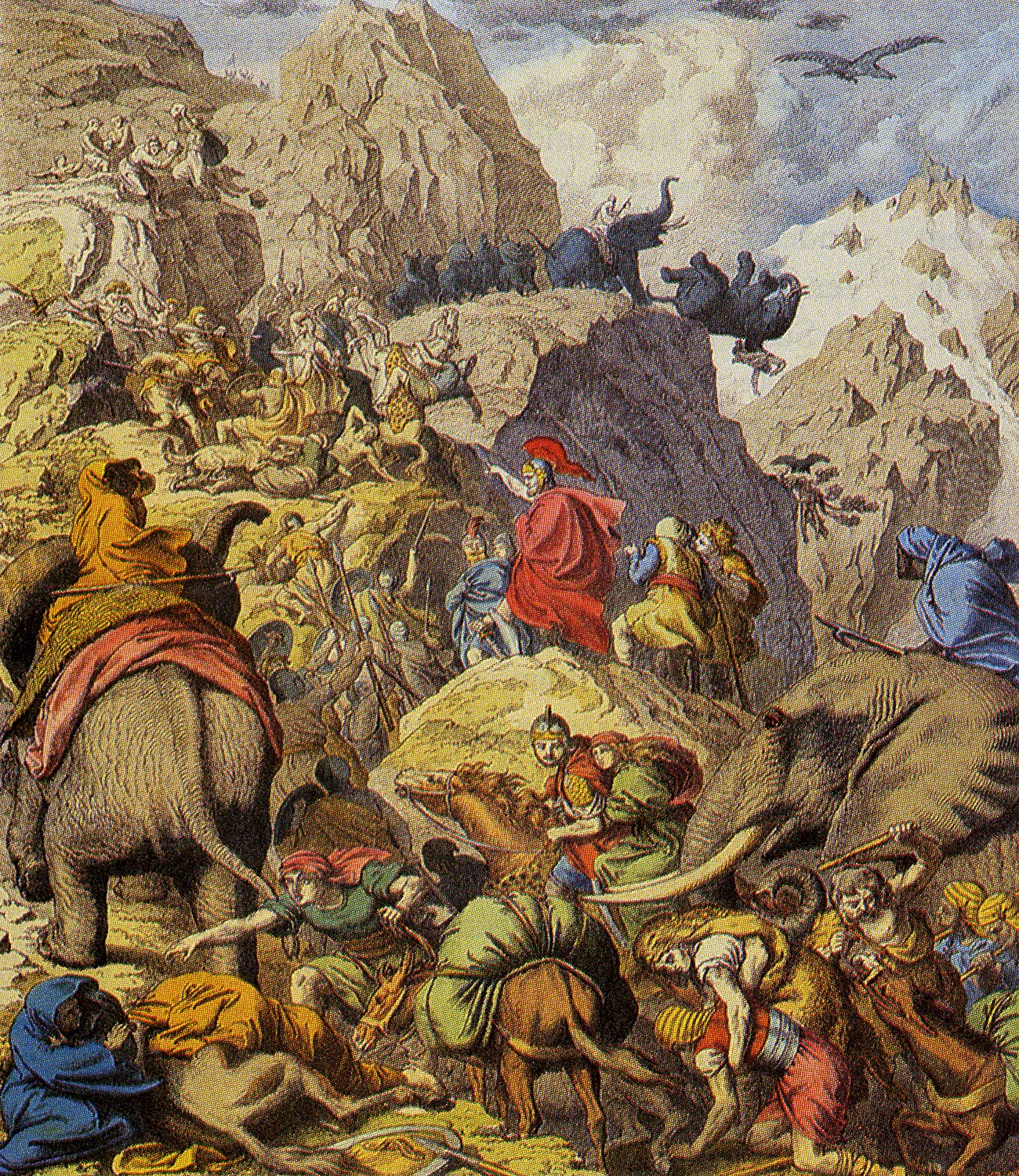Carthage was the richest state in the area, and with the influx of Carthaginians in Sicily, this made the Romans apprehensive about Carthaginian encroachment on the Italian coast. In 264, mutual suspicions drove the two powers into a struggle for the western Mediterranean. This ultimately led to the first Punic War in 264 BC, the Second Punic War with Hannibal Barca which was provoked by the alliance made with Rome and Carthage, and the Third Punic War which was caused by the broken peace treaty Carthage had made with Rome.
First Punic War
 The First Punic War (Punic War 1) began because the Romans decided to intervene in a struggle between two Sicilian cities. The Carthaginians, whom taught that Sicily was under their direct influence, were stricken with jealously of the expansion so they saw this as a cause to go to war. Both sides found it difficult to obtain enough troops to continue the fight, however, after a long drawn out struggle, a Roman fleet defeated the Carthaginians navy off Drepana, Sicily in 242 BC and becomes an enormous Mediterranean power.
The First Punic War (Punic War 1) began because the Romans decided to intervene in a struggle between two Sicilian cities. The Carthaginians, whom taught that Sicily was under their direct influence, were stricken with jealously of the expansion so they saw this as a cause to go to war. Both sides found it difficult to obtain enough troops to continue the fight, however, after a long drawn out struggle, a Roman fleet defeated the Carthaginians navy off Drepana, Sicily in 242 BC and becomes an enormous Mediterranean power.Second Punic War
Three years after the First Punic War (Second Punic War), Rome took advantage of Carthages problems with its mercenaries to seize the islands of Sardinia and Corsica. This act angered the Carthaginians and their leading general Hamilcar Barca, who proceeded to make his nine year old son Hannibal swear that he would hate Rome forever. The Carthaginians built up their forces and found a victory in Spain.Third Punic War
Cato, the conservative politician, decides “Carthage must be destroyed” (Third Punic War) When the Carthaginians break their treaty with Rome by attacking one of Rome’s North African allies, the Romans declare war. The Third Punic War was led by Scipio Aemilianos Africanus who led the Roman forces against Carthage for the last time. Carthage was destroyed and made a province called Africa.The Romans were fanatical about the Carthaginians and so it wasn’t at all surprising after the wars that they looked to the world of Hellenistic politics to advocate the freedom of the Greek states.







7 Comments:
Good post
This is a better history lesson than I ever learned in school. This was one of my favorite time periods to read about. I used to have to read the parts of the history books that the teachers ignored to get anything out of them. I loved history, but much of it was ignored in my schools.
Hey, this site looks different somehow. What happened?
I'm with Ratty. What a great site you've built! I'm looking forward to exploring more in your archives.
Thanks so much for the support everyone and welcome Footsteps to the Digger.
@Doug
I did a bit of tweaking. What do you think?
@Pastor Larry
Thanks so much.
@Ratty
I try make my pieces a bit more enjoyable than just a boring history lesson in grade school. To be honest, I really didn't enjoy this stuff back then, however I was young.
@Footsteps
Thanks for the visit. There's lots to see. If you have suggestions for content, let me know.
I think that the combination of ancient subject matter with a sharp, modern format is just awesome. Where do you get these ideas from?
Doug
I tend to write about subjects that interest me, and I tend to incorporate ancient ideals, as well as the artforms to make each post unique, educational, and entertaining.
Post a Comment
We appreciate comments, but we delete SPAM.